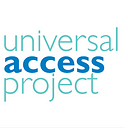It’s time for the world to fulfill its promise to women everywhere

By Seema Jalan
Twenty-five years ago, I was a sophomore in high school, growing up in a middle-income county in New Jersey where my ability to enjoy quality education and health care — including sexual and reproductive information and health care — was all but guaranteed. The same year, the world took action to make this a reality for all when 179 countries came together in a nearly worldwide consensus promising to put reproductive health and rights at the center of global development.
Because of where I was born — which has more impact on a person’s future than any other factor — I was privileged to have these opportunities that so many still go without. It was because of this privilege that I had the ability to pursue an education and career that I love and decide if, with whom and when I wanted to get married and have my two boys. And because of this, I am able to support my family and contribute to my community and country economically and politically. Now, as an advocate working with partners to ensure all people have the same opportunities I had, I can appreciate how profound this global promise from 25 years ago is to the achievement of that vision. It matters that governments around the world agreed that it is central to the futures of their countries that their citizens realize their sexual and reproductive health and rights.
We have made great progress. Our access to contraceptives have increased, fewer women are dying in childbirth from preventable causes, and women everywhere are participating in the economy at unprecedented rates. But for all that we have advanced, we still live in an unjust world of deep inequality driven by geography, gender, race, disability, socioeconomic status, and many other factors, and the unfinished business of making sexual and reproductive rights a reality for all remains.
In short, we have not kept our promise.
We promised to reduce women dying in childbirth from preventable causes by 75 percent, and while we’ve made significant progress, reducing global maternal mortality by just over 40 percent, we’re still falling short. We promised to eliminate violence against girls and women, but an astonishing one in three women still experiences violence in her lifetime. We promised to end harmful practices like child marriage and genital mutilation, but still one in five girls are child brides and more than 4 million girls will be cut just this year. We promised to ensure that every woman who wanted it had access to contraception so she could decide if and when to have children, but more than 200 million women globally want to prevent pregnancy but are not using a modern form of contraception. And we promised to advance gender equality in the halls of political power and civic life, but as we know too well, women are underrepresented in government, civil society, and corporate leadership positions around the world.
It is clear that we are far short of the finish line, especially for the most marginalized: People who live in poverty around the world, especially women and girls. This is not because we don’t know how to solve these problems; We know the solutions, and we have the tools to make them a reality. What we are lacking is political will to reach all people. Change is possible: My life — and the choices I’m able to make for myself and my family — are categorically different than either of my grandmothers.
When countries like the U.S. reverse course on 50 years of leadership on global reproductive rights — with archaic and devastating policies like the global gag rule, or eliminating funding from UNFPA, the UN’s reproductive health agency, or opposing the inclusion of sexual and reproductive health and rights in universal health coverage — we send a message to the world that we are no longer part of this global consensus that agreed that yes, reproductive rights are human rights and yes, those rights matter to the lives and destinies of women, their families, their communities, and the world.
Fortunately, the rest of the world will march ahead. Next week, world leaders will gather in Nairobi to recommit to the promises made 25 years ago and to accelerate action on making them a reality for all. This will be both a gathering point and a rallying moment for governments and business and community leaders to commit — financially, through increased funding, and politically, through policies and programming — to achieving three bold zeroes: zero unmet need for family planning, zero preventable maternal deaths, and zero gender-based violence and harmful practices. The world will be watching, and holding them accountable. Now is the time: I didn’t have to wait, and my life and the next generation of my family have benefited. Why should anyone else have to wait?
